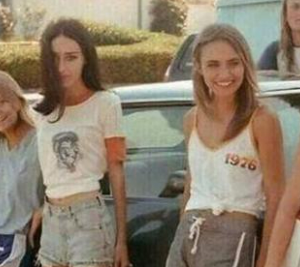Lia Thomas, a well-known swimmer, made the unexpected and intensely emotional decision to give up competitive swimming, citing an emotionally taxing journey and a sense of loneliness in a statement posted yesterday. Thomas, a transgender athlete, has served as the focal point of many discussions about fairness, gender, and the integrity of competition in women’s sports.
Lia’s statement reads: “The waters have been turbulent, not due to the physical demands but the constant battle to seek acceptance and fairness in a sport I adore. No athlete should feel isolated or singled out for their identity rather than recognized for their achievements.”
This choice was made following months of acrimonious discussions, petitions, and arguments about transgender athletes competing in women’s sports. She has shed light on the difficulties faced by transgender athletes both inside and outside of their chosen sporting arenas as a result of her trip through the turbulent waters of public scrutiny, policy discussions, and ethical issues.
Supporters of Thomas contend that her retirement from professional swimming is a big loss for the sport and highlights the need for a nuanced, compassionate, and inclusive strategy for athletes navigating their careers amidst difficult identity discussions. Meanwhile, her detractors have scrutinised her accomplishments and linked them to alleged physiological advantages.
The sports world is forced to look into the reflected waters of ethical, biological, and societal factors surrounding transgender athletes as we negotiate the fallout from Thomas’s withdrawal. The question is: How will this moment influence how competitive sports develop in the future, and how will the conversations impact how future athletes’ experiences are entangled with one another’s stories?
Lia Thomas’s decision to retire from competitive swimming is more than just a personal one; it’s a momentous occasion that calls for a moment of communal reflection on the chances, acceptance, and spaces we provide for all athletes, regardless of their gender identity.
Beyond the upheaval and hardship Thomas experienced personally, her narrative emphasises the need for the international athletic community to create a setting that is egalitarian and fair, upholding the integrity of competition while being welcoming and respectful of the varied identities of athletes. This applies to all participants, regardless of gender identity or experience, including athletes who identify as transgender.
But the problem still exists: how can inclusivity and fairness be balanced in a field that has traditionally been divided along biological lines? Thomas’s experience highlights the need to review sporting regulations, especially those that touch on gender identity and biological differences. Recognising that the policies of the past might no longer be appropriate or comprehensive for the athletes of today and tomorrow may bring her followers and opponents together.
The discussion of the physiological, psychological, and ethical aspects of this issue necessitates a rigorous, objective, and sympathetic assessment as it spreads into many contexts, from locker rooms to legislative chambers. Expertise from endocrinologists to ethicists, players to administrators is needed in the discussion over transgender athletes, their biology, and their right to compete.
The conversation surrounding Lia Thomas has ranged from fervent support to sharp scepticism. Others emphasise the psychological and physical effects of transitioning, which can be physically and emotionally draining. Some claim that transgender women may have physiological benefits over cisgender women.
Underneath the scientific, moral, and competitive dimensions of the discussion, there is a fundamentally human element that deserves priority: respect and empathy for the lived experiences of all athletes, which acknowledges their challenges, victories, and sacrifices made in the name of excellence.
Critical questions are raised by Thomas’s departure, necessitating an intersectional strategy that balances inclusivity and fair competition. This takes into account things like hormone levels, physical characteristics, and how these could affect competitive advantages or disadvantages in the sporting sphere. These questions can’t be answered in a simple or one-dimensional way.
We are witnesses to an athlete who achieved the summit of accomplishment but found the path to be tainted by scrutiny, seclusion, and protracted controversy over her basic right to compete. Thomas’s declaration and subsequent withdrawal from competition offer a significant and moving opportunity for thought that goes well beyond the realm of sports.
The effects of Thomas’s withdrawal will unavoidably be felt throughout the sports community, inspiring athletes, governing bodies, and fans to consider how we can foster a culture that recognises and honours all athletes for their commitment, talent, and athletic accomplishments, free from exclusion or bias.



